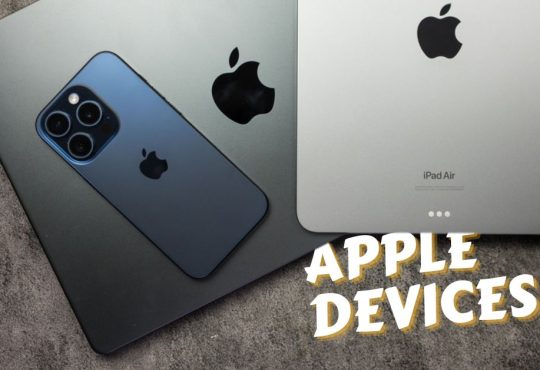
In today’s technological era, wherein most of our time is submerged in the internet, we always look forward to the best digital experiences. So, choosing web browsers is impactful and significant to us. It gives us the hope of having the answers to our queries and even exploring the world at our fingertips while facing the monitors in less time than possible. So today, let us dive deeper into the world of Safari vs. Chrome intertwined with its definition, advantages and disadvantages.
What are Safari and Google Chrome?
Safari is a web browser similar to Internet Explorer, Mozilla Firefox, and Google Chrome. It was developed by the North American company Apple. It was launched in January 2023 for its macOS(used by MAC computers) and later extended to iOS operating systems (used by iPod, iPad, and iPhone). Safari refers to the spirit of exploration the company wanted to give the browser. This web browser became famous following the launch of the iPhone smartphone in 2007 and is presently the fourth most used web browser in the world, following Internet Explorer, Mozilla Firefox, and Google Chrome.
Safari is a secure web browser integrating advanced privacy protection features that prevent trackers from accessing users’ data. Beyond security, Safari delivers lightning-fast browsing speeds and extended battery life, enhancing user experience. It offers increased personalization options and supports various third-party extensions, further enriching its functionality.
Meanwhile, Google Chrome is a free web browser, which Google officially released on the 11th day of December 2008. It is a cross-platform internet browser, and some versions work on different computers, mobile devices, and operating systems. Above all else, it has a broader range of Windows, Linux, macOS, iOS, and Android platforms with the best compatibility. Yet, to this day, Google Chrome in Android is the most used version as it comes in handy through gadgets such as smartphones and tablets.
Google Chrome stands as a secure, versatile browser offering fast, advanced search features and seamless integration with Google apps such as Gmail, Google Pay, and Google Assistant across various platforms, catering to diverse user needs. With options for theme customization and robust privacy controls, Google Chrome empowers users to personalize their browsing experiences. Additionally, Chrome prioritizes user safety through password checks and safe browsing protections, ensuring a secure online environment at all times.
These two are known and widely used web browsers offering excellent choices and features. They both render powerful engines and reliable tab management, allowing users to access and navigate the internet.
What are the advantages and disadvantages of Safari and Google Chrome?
Advantages of Safari:
Demonstrated Optimization of Software-Hardware Integration.
Apple‘s software and applications are renowned for their seamless performance on Apple devices, and Safari is no exception. Developed with consideration for relevant operating systems and hardware specifications, Safari operates efficiently on Mac computers, iPhones, and iPads by default.
Satisfactory Speed and Performance.
While browsers like Chrome and Safari are recognized for their speed, Apple’s browser maintains an acceptable level of performance. Its integration with hardware ensures efficient resource utilization, particularly in terms of RAM consumption, distinguishing it from Chrome and other Chromium-based browsers.
Handoff Feature for Continuity in Browsing
Safari’s Handoff feature allows users to continue browsing sessions seamlessly across various Apple devices. For instance, users reading an article on their MacBook can effortlessly transition to their iPhone or iPad, ensuring uninterrupted browsing.
Clean and Streamlined Design
Safari stands out for its minimalist design, pioneering a straightforward user interface without unnecessary buttons and menus cluttering the window. Many users appreciate its cleaner and simpler interface compared to Chrome, Mozilla Firefox, and Microsoft Edge.
Enhanced Privacy Protection and Security Measures
With several built-in privacy-related features, Safari offers a standard Privacy Browsing mode, pop-up blocker, and JavaScript blocker. Its Privacy Report tool, driven by Intelligent Tracking Prevention technology, employs machine learning to block cross-site tracking without compromising website functionality.
Apple Device Emulation for Developers
Safari facilitates web developers by enabling emulation of iOS, iPadOS, and Apple Watch devices through the Simulator tool, accessible via the XCode integrated development environment application. Developers can also remotely debug or inspect web views using the Develop tool.
In conclusion, Safari browser offers unparalleled speed, robust security, seamless compatibility across Apple devices, and innovative tools for enhanced browsing. Whether you’re an Apple enthusiast or seeking a reliable and feature-rich browser, Safari is a compelling choice.
Disadvantages of Safari:
Limited Availability Across Operating Systems
Although Safari was accessible for Windows between 2007 and 2012, Apple ceased its development for platforms beyond its ecosystem. Presently, it is solely compatible with macOS, iOS, and iPadOS, posing a limitation in actual cross-platform functionality.
Criticism Regarding Security Measures
While Safari boasts some privacy features, critiques emphasize the lack of additional built-in security measures to ensure secure browsing. For instance, it lacks notifications for users accessing unencrypted sites despite displaying websites with SSL or TLS encryption. Moreover, software updates could be more frequent.
Restricted Options for Data Synchronization
Safari offers a Handoff feature enabling users to continue browsing sessions on different Apple devices. However, data synchronization exclusively occurs through iCloud, without provisions for alternative cloud services. Furthermore, unlike other browsers, it only synchronizes browsing history and bookmarks, lacking the ability to sync settings and other user preferences.
Limited Selection of Browser Extensions
Due to its modest feature set, Safari needs more available extensions or add-ons, which critics view as a significant drawback. Chromium-based browsers like Chrome, Edge, and Opera offer greater interoperability with a broader array of add-ons, while Firefox boasts its expansive extension library.
Minimal Customization Control
In alignment with Apple’s established product philosophy observed in macOS and iOS, Safari offers users minimal control over interface customization, confining them to the default user interface. In contrast, browsers like Chrome, Opera, and Firefox provide extensive customization options.

Advantages of Google Chrome:
Cloud Storage:
Chromebooks come with 100GB of complimentary cloud storage, usable across Google Drive, Photos, Docs, Sheets, Slides, and other Google apps, providing ample space for your online endeavors.
Swift and Cost-effective:
The free and open-source Chrome OS offers accessibility to its code on GitHub for all to explore and modify. Compared to the pricier Windows and Mac OS, Chrome OS boasts an 8-second startup time and rapid loading of apps and websites, ensuring efficient performance.
Linux Kernel Integration:
Chrome OS, built on the stable Linux kernel, allows users to install native Linux applications, enhancing versatility and functionality.
Office Applications Integration: With integrated tools like spreadsheets, slides, disks, and documents, Chromebooks streamline office tasks directly within the Chrome browser, simplifying productivity.
Affordable and User-friendly:
Chromebooks are budget-friendly, typically priced between $300-$400, offering an accessible option for web browsing, email, social networking, video streaming, online applications, and even educational purposes, catering to users of all ages and needs.
Extended Battery Life:
Chromebooks offer up to 13 hours of usage, outlasting many MacBooks and facilitating prolonged office work or research tasks.
Intuitive Touchpad Gestures:
Chromebook touchpads support various gestures for efficient multitasking, including three-finger swipes to view all windows and two-finger swipes for page navigation.
Disadvantages of Google Chrome:
Fast Internet Requirement:
Chrome OS necessitates a speedy internet connection since most Chromebooks are tailored for web-based applications. All Chromebook apps operate via the cloud, so more than 30 GB of local storage may be required for extensive data storage. Online streaming via YouTube or Netflix is the sole option for movie viewing.
Gotowebinar Limitation:
Gotowebinar, a widely used online conferencing tool, is incompatible with Chrome OS and functions exclusively on Windows and Mac OS platforms.
Redundancy with Additional Laptops:
Purchasing a Chromebook may be unnecessary if you own a laptop or PC, as the existing device likely includes essential Chrome browser features.
Limited Software Availability:
Chrome OS lacks compatibility with specific software due to the preference of most software companies to develop for PC and Mac platforms, which boast larger user bases. Furthermore, Chrome OS primarily caters to internet applications rather than heavy software installations.

Safari vs. Chrome: Which Browser is Better?
This portion will compare Safari and Chrome based on speed, performance, security, and privacy.
Safari vs. Chrome: Speed Battle
Speed is paramount in web browsing, particularly when accessing data-heavy websites or managing multiple tabs. A thorough comparison conducted by Cloudwards indicates that Google Chrome outpaces Safari in raw speed, boasting a score of 122.5 compared to Safari’s 113.8.
For instance, loading content-rich websites like news portals or social media feeds on Chrome is approximately 7% faster, saving valuable seconds. This efficiency becomes even more apparent for multitaskers juggling various tabs, where Chrome’s performance shines through seamless multitasking capabilities.
However, speed isn’t solely about page loading; it also encompasses smooth browser operations and efficient task management. In this regard, Safari presents stiff competition to Chrome with its lightweight design, tailored for seamless functionality across older Apple devices.
Safari vs Chrome: Performance Perspectives
Staying relevant in the rapidly evolving tech landscape demands innovation, a principle that web browsers like Safari exemplify. Notable for its seamless integration with the Apple ecosystem, Safari offers more than mere syncing of bookmarks; it allows users to transition seamlessly between Mac, iPhone, and iPad devices while maintaining continuity in browsing sessions.
Privacy is another area where Safari excels, with its Intelligent Tracking Prevention feature leveraging machine learning to safeguard user data from trackers. Additionally, Safari syncs effortlessly with Apple Pay, ensuring secure and private online transactions without compromising convenience.
In contrast, while Chrome offers extensive customization through extensions, it lacks the deep integration and privacy features synonymous with Safari. Chrome’s strength lies in its compatibility across platforms and widespread adoption, ensuring a consistent browsing experience across various devices.
Safari vs. Chrome: Security Standoff
Security is a paramount concern for internet users, and both Safari and Chrome have implemented robust measures to ensure safe browsing. Chrome’s sandboxing technology isolates tabs and extensions within protective shells, complemented by customizable security extensions and Google’s Safe Browsing technology.
On the other hand, Safari adopts a more minimalist approach by limiting features and plugins, resulting in fewer known vulnerabilities than Chrome. This approach shields users from potential exploits, contributing to Safari’s reputation as a secure browsing option.
Privacy Paradigms: Safari vs. Chrome
In an era where digital privacy is a growing concern, Safari and Chrome have prioritized user privacy, albeit with differing approaches. Chrome, known for its data-centric practices, collects user information to personalize browsing experiences and display targeted ads.
While Chrome offers features like incognito mode and cookie tracking controls, Safari takes a more proactive stance on privacy. Safari’s Intelligent Tracking Prevention feature blocks tracking cookies, making it challenging for advertisers to target users with personalized ads. Additionally, Safari’s Privacy Report provides transparency into blocked trackers, reinforcing its commitment to user privacy.
With iCloud Keychain, Safari enhances privacy further by generating, storing, and auto-filling robust, unique passwords and safeguarding online accounts against unauthorized access. Ultimately, while both browsers offer privacy features, Safari’s proactive approach sets it apart as a leader in privacy protection.
For Apple enthusiasts who prioritize speed, innovation, and security, Safari is preferred. However, for those who prioritize cross-platform compatibility and slightly faster performance, Chrome stands out as the go-to option.
Key distinctions lie in speed, security attributes, and system integration. Chrome typically excels in speed and provides a broader array of extensions, while Safari boasts superior integration with Apple devices and enhanced privacy features.
Conclusion:
Each browser, whether Safari or Chrome, has its strengths and weaknesses. The key is finding the one that best aligns with your personal needs, device ecosystem, and browsing habits. Thus, knowing what’s best between these web browsers hinges on individual needs and personal preferences.





